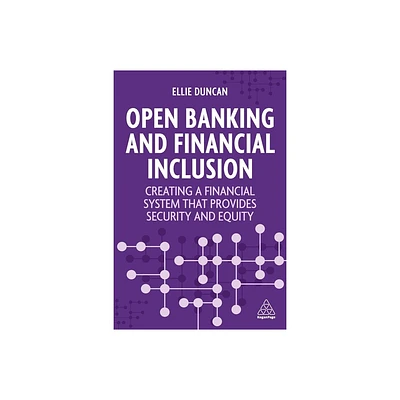Home
Pesos or Plastic?: Financial Inclusion, Taxation, and Development in South America
Loading Inventory...
Barnes and Noble
Pesos or Plastic?: Financial Inclusion, Taxation, and Development in South America
Current price: $54.99


Barnes and Noble
Pesos or Plastic?: Financial Inclusion, Taxation, and Development in South America
Current price: $54.99
Loading Inventory...
Size: OS
*Product Information may vary - to confirm product availability, pricing, and additional information please contact Barnes and Noble
The book covers financial inclusion in the southern cone (Argentina, Brazil, and Chile) and its impact on public finance. Possible negative consequences of greater financial inclusion are identified, but the book argues potential benefits outweigh costs. Financial inclusion has many definitions, but in this book, we interpret it as bank account ownership and the use of banking services. Financial inclusion in this context proffers advantages in the area of tax collection, perhaps the southern cone’s gravest economic obstacle given its future debt servicing commitments and its socioeconomic development challenges.
Households with a bank account – or, the bank participation rate – began increasing significantly around 2002, and this increase has coincided with an unexpected rise in tax collection (especially value-added taxes (VAT)) spanning periods of macroeconomic growth (2003-2009) and stagnation (2010-2015). Correlation does not imply causation, yet using empirical methods this book shows financial inclusion contributes to better tax collection by encouraging more formal market transactions via the use of bank-provided credit and debit cards. Consumption represents the largest component of most economies and consumption taxes contribute more to public revenue in the southern cone than other taxes, hence more formal consumption enhances overall tax collection.
Households with a bank account – or, the bank participation rate – began increasing significantly around 2002, and this increase has coincided with an unexpected rise in tax collection (especially value-added taxes (VAT)) spanning periods of macroeconomic growth (2003-2009) and stagnation (2010-2015). Correlation does not imply causation, yet using empirical methods this book shows financial inclusion contributes to better tax collection by encouraging more formal market transactions via the use of bank-provided credit and debit cards. Consumption represents the largest component of most economies and consumption taxes contribute more to public revenue in the southern cone than other taxes, hence more formal consumption enhances overall tax collection.


















